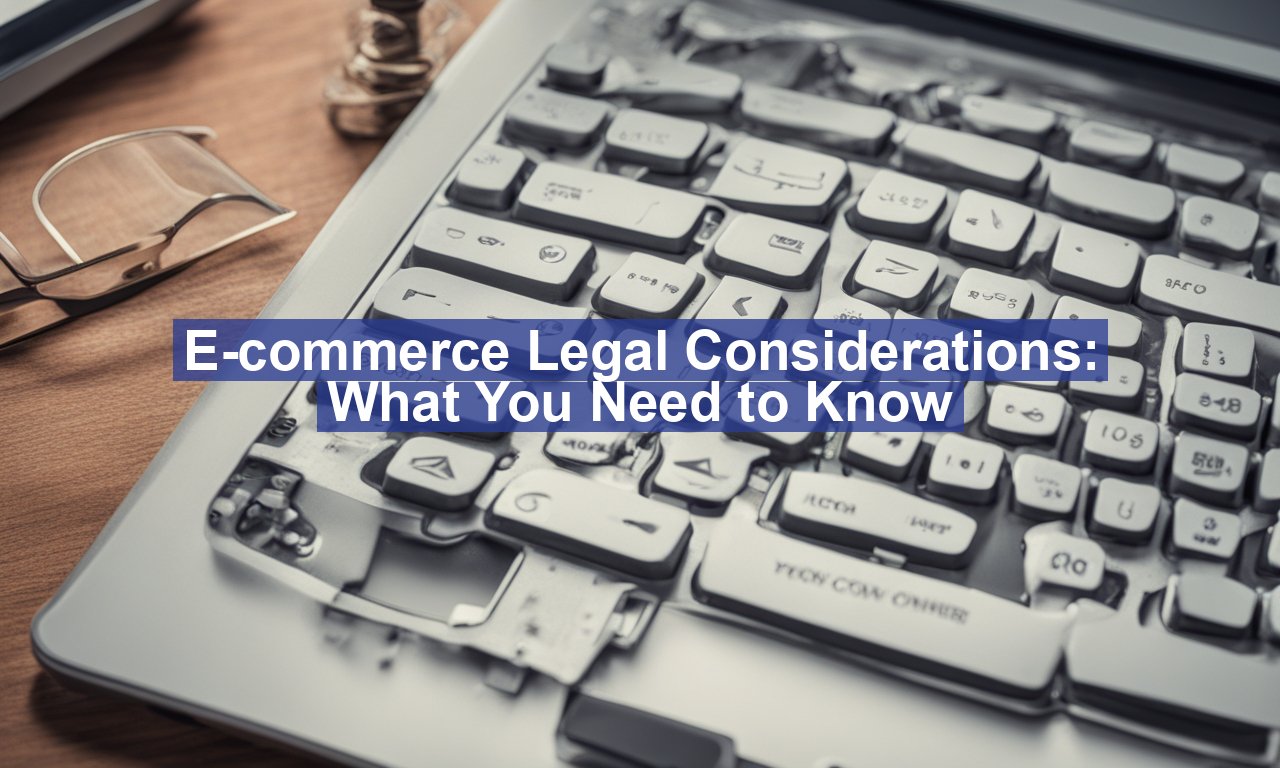E-commerce legal considerations: What you need to know where opportunities seem endless and boundaries virtually nonexistent, it’s easy to get swept away by the excitement of launching an online business. However, beneath the allure of digital storefronts lies a critical component that can make or break your e-commerce legal considerations: what You need to know. Whether you’re a budding entrepreneur or a seasoned online retailer, understanding the legal landscape of e-commerce is essential for protecting your business, building consumer trust, and ensuring long-term success. This blog post will guide you through key legal principles, address common questions, and provide actionable insights to help safeguard your online enterprise.
E-commerce Legal Considerations: What You Need to Know Step-by-Step-Guide
Understanding E-commerce Regulations
Every country has unique e-commerce regulations that govern how online businesses operate. At the outset, it’s crucial to familiarize yourself with the regulations applicable in your target market. These rules often address issues such as data protection, consumer rights, and advertising standards. For instance, if you’re operating within the European Union, you must comply with the General Data Protection Regulation (GDPR), which focuses on protecting consumer data and privacy. Within the United States, various laws such as the Children’s Online Privacy Protection Act (COPPA) might apply, especially if your website collects information from minors.
Privacy Policies and Data Protection
We live in a data-driven world where data privacy is a major concern for consumers and regulators alike. A comprehensive privacy policy is not just a legal requirement in many jurisdictions but also a trust-building tool for your business. This document should clearly explain how your website collects, uses, and stores customer data. Ensure that you have an easy-to-understand privacy policy readily accessible on your website. Transparency is key, and keeping your policy updated aligns with the best practices in the e-commerce industry.
Terms and Conditions
Your e-commerce site should include a robust set of terms and conditions (T&Cs) to help govern the relationship between your business and its users. T&Cs typically cover aspects such as the use of the website, order processes, payment terms, delivery information, return policies, and dispute resolution mechanisms. While it’s tempting to use a generic template from the internet, having professionally drafted T&Cs tailored to your specific business needs can help avoid potential legal pitfalls.
Intellectual Property Considerations
Intellectual property (IP) is a critical area for e-commerce businesses, particularly because your brand identity and products may include proprietary content or creative assets. Here are some key points to consider:
- Trademark: Registering your business name and logo can protect against unauthorized use by competitors.
- Copyright: Original content, such as product images and descriptions, should be protected under copyright laws to prevent duplication and misuse.
- Patents: If your e-commerce business revolves around a unique product, obtaining a patent can prevent competitors from replicating your invention.
Dealing with Infringements
The digital nature of e-commerce increases the risk of intellectual property infringement, whether it’s someone copying your content or selling counterfeit versions of your products. In such cases, it’s important to act swiftly. Sending a cease-and-desist letter is often a first step in addressing the issue. Additionally, many online platforms have built-in mechanisms to report IP violations.
Payment Processing and Security
Ensuring the security of payment transactions is paramount in e-commerce. Partner with reputable payment gateways that provide robust security measures and comply with the Payment Card Industry Data Security Standard (PCI DSS). Offering secure payment options not only protects your business from fraud but also instills confidence in your customers.
Handling Returns and Refunds
A well-documented return and refund policy is essential for any e-commerce business. This policy should clearly outline the conditions under which customers can return products and receive refunds. In many regions, laws dictate specific rights for consumers, such as allowing returns within a certain period. Staying compliant with these laws and clearly communicating your policies can help avoid disputes.
Tax Obligations
One area that often confuses online retailers is tax compliance. E-commerce businesses are generally subject to sales tax, value-added tax (VAT), or goods and services tax (GST), depending on the jurisdiction. It’s crucial to understand your obligations, as they can vary widely based on where your customers are located. Engaging with a tax professional or utilizing specialized software can help ensure proper compliance and prevent costly penalties.
Cross-Border E-commerce
Expanding your e-commerce business internationally can present significant opportunities, but it also brings added compliance challenges, particularly around tariffs, duties, and tax regulations. Make sure to consult legal and financial experts who specialize in international trade to navigate these complexities effectively.
Conclusion
E-commerce legal considerations: What you need to know navigating the legal landscape of e-commerce is a complex yet indispensable aspect of running a successful online business. By understanding the regulations and ensuring compliance, you can protect your business, build robust customer relationships, and steer clear of legal pitfalls. For those ready to delve deeper into specific legal issues, exploring resources like the Legal Information Institute or seeking advice from a legal professional will provide invaluable guidance. Remember, a legally sound foundation is a key ingredient for long-term e-commerce success.


